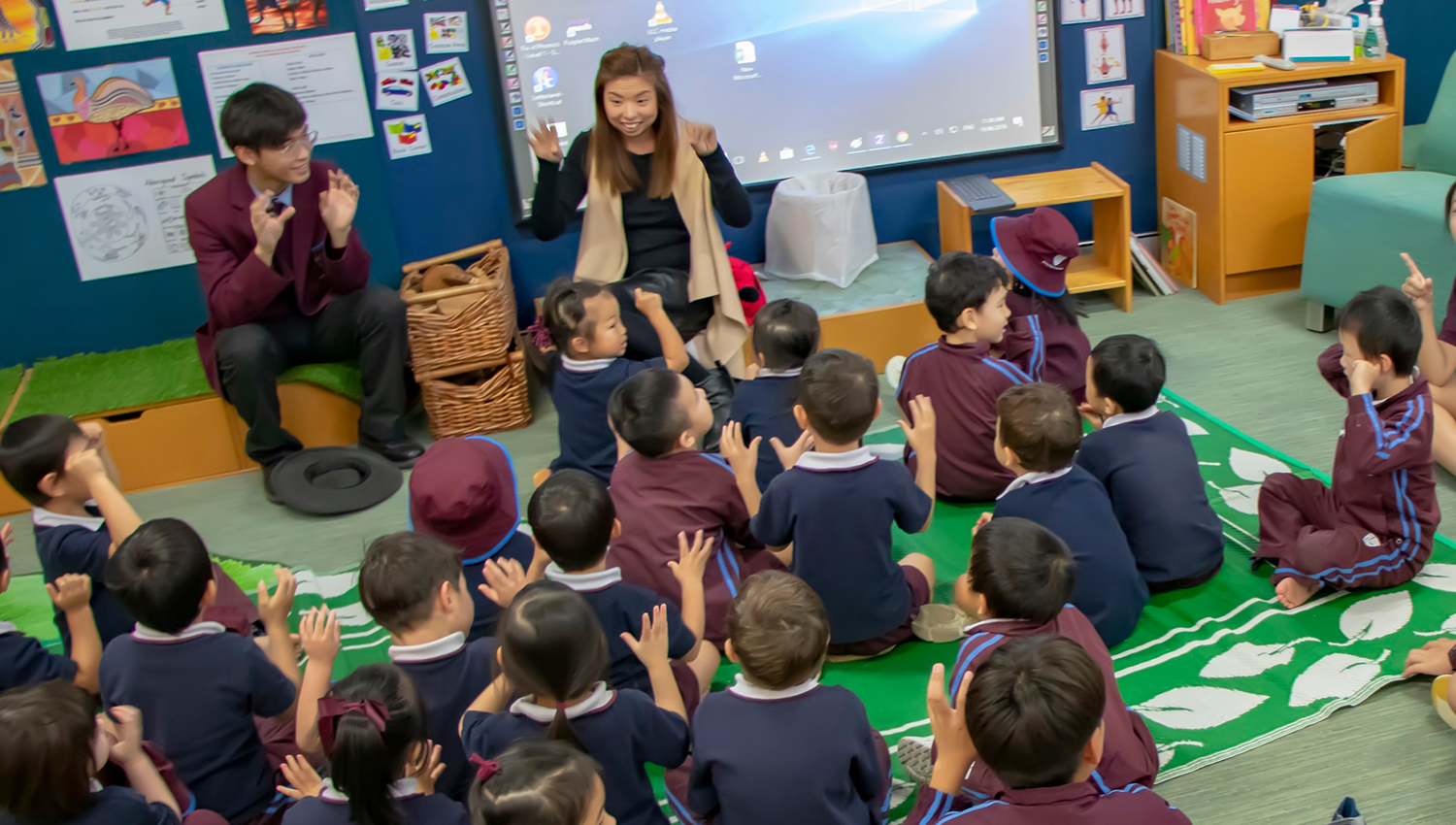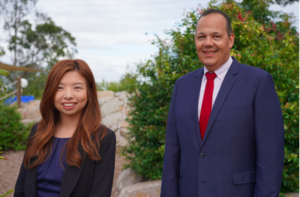John Paul College’s Alice Pan-Moreau is one of many independent school teachers to be shortlisted as a nominee in the prestigious 2020 TEACHX Awards.
Mrs Pan-Moreau, an early years teacher from John Paul College in Brisbane’s Daisy Hill, is one of ten educators vying for TEACHX’s ‘Outstanding Contribution to School Community’ award.
Her John Paul College colleague Michael King, a year one teacher (pictured below with Alice), has also been shortlisted in the ‘Excellence in Beginning to Teach’ category.
Congratulations to both educators – and the many other independent schools teachers who have been shortlisted in this year’s awards. Read the full list of shortlisted teachers.
Nominations spike as a result of COVID
Given the increased respect between parents and teachers as a result of 2020’s ‘home learning’ period, it is perhaps unsurprising to read that there has been a “staggering 60 per cent spike in nominations [for TEACHX] amid COVID-19”.
“Across six award categories, a record 60 per cent increase of teachers were this year nominated for the Queensland College of Teachers’ lauded TEACHX awards,” The Courier-Mail reported on September 23.
“Seventy-four of those nominees have now been shortlisted before finalists will be announced mid-October.”
You can revisit our story on Mrs Pan-Moreau’s unique Mother Tongue Club below – one of several initiatives embracing parents and families – which has contributed to her ongoing recognition. We wrote this story in 2019 after Mrs Pan-Moreau was certified as a Highly Accomplished Teacher.
Culturally diverse families welcomed at John Paul College – a re-cap…
At John Paul College at Daisy Hill in Brisbane’s south, students and parents from culturally diverse backgrounds are learning to embrace and celebrate their “mother tongue” at school in a ground-breaking program steered by Year Two teacher Alice Pan-Moreau.
Mrs Pan-Moreau’s own experience of moving from Taiwan to Australia as a child and only speaking her native Mandarin, has informed the Mother Tongue Club which brings together students from a different cultural background every month to socialise and network.
The program has been enthusiastically received by families: it is estimated that across the college there are more than 50 mother tongue languages spoken, including Mandarin, Korean, Thai, Portuguese, Arabic, Hindi and Cantonese. (Mother tongue is a term used to describe the language a person learned first and uses the most.)
“My heart goes out to the EAL/D (English as an Additional Language or Dialect) students because I was them once and I remember feeling ‘Oh I don’t want to speak Mandarin because I want to fit in’ and it’s also common for parents to worry that if their children speak their first language they are not going to pick up English,’’ she says.
“But there is so much research that shows maintaining a child’s first language allows them to apply their knowledge of language structure to acquire the second language – in this case English – more easily.
“There is another reason we are doing this and that is because language and culture are so important to these families’ sense of identity. We never want students to hide their culture. Instead it’s something they should be so proud of and it’s something as a school we want to celebrate and value.’’
Parents and students invited to take a lead role
All Mother Tongue Club attendees are encouraged to communicate in their own home language while they are at the 45 minute sessions, which coincide with the school’s first break. Gatherings are often linked to culturally significant celebrations, which parents and senior students from those communities take an active role in organising and leading.
The club has been running for two and a half years and its popularity continues to grow. A Chinese New Year event in February for Mandarin-speaking families attracted 90 students, parents and teachers.
It has also had both subtle and tangible flow-on effects for both families and the wider school community, Mrs Pan-Moreau reports.
“A lot of times EAL/D parents are quite hesitant to participate in school events because they don’t feel confident in their English abilities or culturally they might be more shy, so this is an opportunity to be involved in a more meaningful way.
“At the end of the event, parents always say how much they appreciate that this is something the school is supporting and valuing.’’
There is also plenty of networking as a result: younger students get to know older students who share their home language and parents have also been able to extend their social reach.
Teachers have also benefited: before and after each monthly event, Mrs Pan-Moreau communicates to staff what occurred and who attended, which allows classroom and specialist teachers to learn more about their students. They will then sometimes incorporate the use of students’ mother tongue to enhance learning experiences.
Work recognised with ‘Highly Accomplished Teacher’ certification
The Mother Tongue Club is one of the aspects of Mrs Pan-Moreau’s work that contributed to her certification as a Highly Accomplished Teacher in the 2019 Highly Accomplished and Lead Teachers (HALT) certification process*.
She is one of eight teachers from John Paul College to be certified as a HALT this year and one of 27 new HALT-certified teachers across the independent sector. They bring to 56 the number of HALT-certified teachers now working across 17 independent schools.
Mrs Pan-Moreau, who studied teaching at Queensland University of Technology, came to John Paul College in 2016 after four-and-half years teaching internationally in the United Arab Emirates, Thailand and China.
She said that international experience has given her a unique perspective.
“I’ve always enjoyed working with international students and families. One of the reasons I love teaching at John Paul College is because our student population is so diverse.’’





